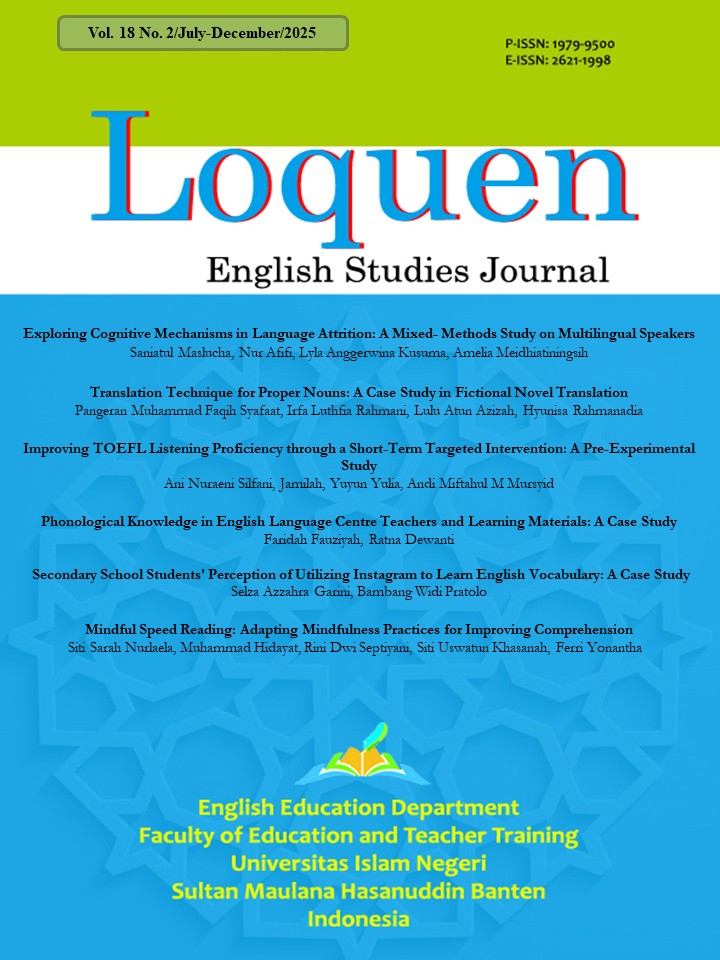Exploring Cognitive Mechanisms in Language Attrition: A Mixed-Methods Study on Multilingual Speakers
 DOI:
DOI:
https://doi.org/10.32678/loquen.v18i2.12006
 Abstract viewed : 103 times
|
Abstract viewed : 103 times
|  pdf downloaded : 49 times
pdf downloaded : 49 times
Keywords:
Language attrition, Multilingual educators, Cognitive mechanisms, Language use frequencyAbstract
Language attrition, defined as the gradual decline in language proficiency, presents a critical challenge for multilingual junior high school educators in Indonesia. This study investigates the cognitive mechanisms driving language retention and loss, with a focus on factors such as cognitive load, language use frequency, emotional connections, and institutional policies. Employing a mixed-methods approach that includes literature reviews, semi-structured interviews, surveys, and cognitive assessments, the research examines experiences among multilingual educators in Kediri. Findings reveal that Bahasa Indonesia proficiency remains high due to regular usage, while English and regional languages face varying attrition levels. Qualitative data indicate that language switching increases cognitive strain, particularly when proficiency levels vary. Emotional attachment to regional languages mitigates attrition, though institutional policies emphasizing Bahasa Indonesia and English contribute to linguistic compartmentalization. Addressing language attrition requires balanced policies that promote consistent multilingual use, thereby reducing cognitive strain and fostering emotional connections. These findings offer practical insights for enhancing multilingual education in Indonesia’s schools.
Downloads
Downloads
Published
Issue
Section
License
Copyright (c) 2025 Saniatul Maslucha, Nur Afifi, Lyla Anggerwina Kusuma

This work is licensed under a Creative Commons Attribution-ShareAlike 4.0 International License.





















